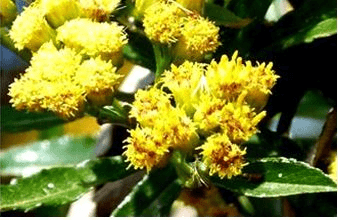PHYTOCHEMICAL, ANTI-INFLAMMATORY, ANALGESIC, ANTIPYRETIC AND ACUTE TOXICITY OF PSIADIA PUNCTULATA GROWING IN YEMEN
Keywords:
Analgesic, antipyretic, anti-inflammatory, Psiadia punctulata, YemenAbstract
Background: Psiadia punctulata growing in Yemen is used traditionally for different medicinal purpose, such as in casts of broken bones and for relief of pain, fever and abdominal pain.
Objective: To determine the chemical composition and to assess the anti-inflammatory, analgesic, and antipyretic activity of P. punctulata leaf extracts.
Method: Phytochemical screening of P. punctulata ethyl acetate and ethanol extracts were performed using chemical tests and thin layer chromatography. An acute oral toxicity study was conducted in rats by administering oral ethanol leaf extract of up to 5000 mg/kg. The anti-inflammatory activity of orally administered ethyl acetate and ethanol extracts (200, 400 mg/kg) and diclofenac (20 mg/kg) were evaluated using a formalin-induced inflammation rat model. The analgesic activity of orally administered ethyl acetate and ethanol leaf extracts (100, 200, 300mg/kg), compared to diclofenac (20 mg/kg) were evaluated by a formalin-based test as well. The antipyretic activity of oral ethyl acetate and ethanol extracts (400 mg/kg) versus paracetamol (150mg/kg) was assessed in Baker’s Yeast-induced pyrexia rats.
Results: The phytochemical analyses indicated the presence of alkaloids, carbohydrates, steroids, phenolic compounds/tannins, phytosterols, saponins, gum and mucilage. The ethanol extract of the plant was apparently safe in rats at doses as high as 5000 mg/kg body weight. Time- and dose-dependent anti-inflammatory activity of the ethyl acetate and ethanol extracts (200 and 400 mg/kg) were clearly observed in rats. The results showed that both extracts exerted significant analgesic and antipyretic effects.
Conclusion: Psiadia punctulata possess anti-inflammatory, analgesic and antipyretic activities with a wide safety margin.

Peer Review History:
Received: 8 August 2020; Revised: 13 September; Accepted: 25 October; Available online: 15 November 2020
Academic Editor: Rola Jadallah , Arab American University, Palestine, rola@aauj.edu
, Arab American University, Palestine, rola@aauj.edu
Reviewer(s) detail:
Dr. Gehan Fawzy Abdel Raoof Kandeel , Pharmacognosy Department, National Research Centre, Dokki, 12622, Giza, Egypt, gehankandeel9@yahoo.com
, Pharmacognosy Department, National Research Centre, Dokki, 12622, Giza, Egypt, gehankandeel9@yahoo.com
Ahmad Najib , Department of Pharmacognosy-Phytochemystry Universitas Muslim Indonesia-Indonesia, ahmad.najib@umi.ac.id
, Department of Pharmacognosy-Phytochemystry Universitas Muslim Indonesia-Indonesia, ahmad.najib@umi.ac.id
Downloads

Published
How to Cite
Issue
Section

This work is licensed under a Creative Commons Attribution-NonCommercial 4.0 International License.









 .
.